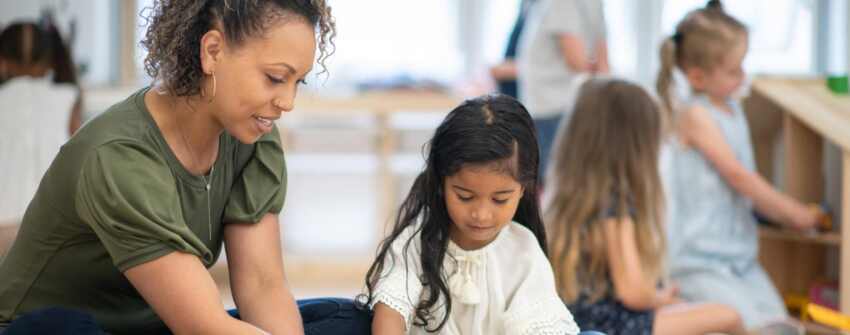Measurement is an essential skill that children need to develop as part of their early education. Traditional measurement tools like rulers and scales are effective but can be limiting in fostering a deep understanding of measurement concepts
Measurement is an essential skill that children need to develop as part of their early education. Traditional measurement tools like rulers and scales are effective but can be limiting in fostering a deep understanding of measurement concepts. Fortunately, Montessori education offers innovative approaches to teaching measurement that go beyond these conventional methods. In this article, we will explore some creative and engaging measurement activities inspired by the Montessori philosophy.
Mystery Bags
One fascinating Montessori measurement activity is the use of mystery bags. These bags contain different objects with varying sizes, textures, and weights. The child’s task is to sort the objects based on different measurement attributes, such as length, weight, or texture. This hands-on activity encourages children to rely on their senses and make comparisons between objects, developing their measurement skills in a fun and interactive way.
Measuring with Body Parts
Incorporating body parts as measurement tools can be an excellent way to introduce measurement concepts to children. Montessori classrooms often have large floor mats marked with measurements that enable children to use their bodies to measure. For example, children can measure the length of a table using their feet or determine the width of a classroom shelf using their hands. This activity not only reinforces basic measurement skills but also promotes body awareness and coordination.
Nature Walks
Nature walks provide Montessori children with opportunities to explore measurement concepts in real-world contexts. While on a nature walk, children can measure the length of leaves, the circumference of trees, or the depth of puddles using non-standard units, such as their own feet or hands. Encouraging children to engage with nature while learning about measurement fosters curiosity and a sense of wonder, making the learning experience more memorable and meaningful.
Estimation Jars
Estimation jars are an engaging Montessori activity that helps children develop estimation skills related to measurement. The teacher or child fills different jars with items such as buttons, shells, or beans, hiding the actual quantity from sight. The child’s task is to estimate the number of objects in each jar and record their estimations. Afterward, they can count the actual quantity and compare it to their estimate, honing their measurement skills and understanding of quantity.
Baking and Cooking
Baking and cooking activities provide rich opportunities for children to apply measurement concepts in a practical and meaningful context. Montessori classrooms often have child-sized cooking stations equipped with measuring cups, spoons, and scales. Children can practice measuring ingredients, understanding fraction concepts, and even exploring the fundamentals of weight as they engage in hands-on cooking experiences. These activities not only nurture measurement skills but also promote independence, sensory development, and a love for healthy food.
Montessori education offers a range of innovative measurement activities that go beyond rulers and scales to engage children in meaningful learning experiences. By incorporating hands-on activities like mystery bags, measuring with body parts, nature walks, estimation jars, and cooking, children develop a deep understanding of measurement concepts while fostering their natural curiosity and creativity. These innovative approaches to measurement pave the way for a solid foundation in mathematics and critical thinking.
Nidhin
For More Details Call: +917510220582
